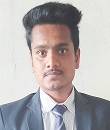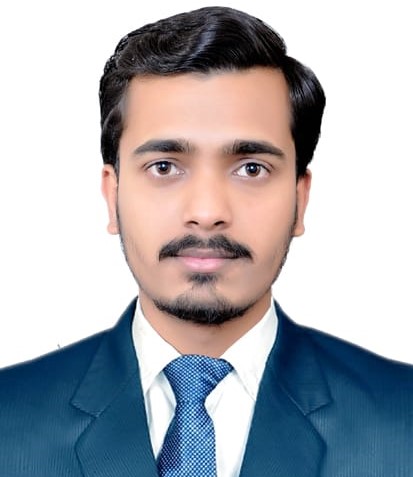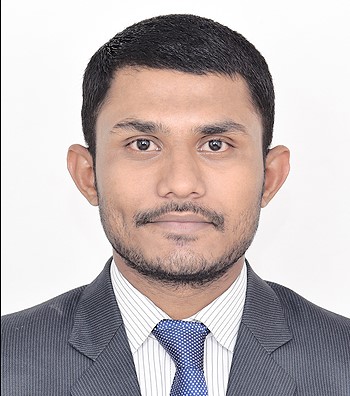Department Information
Department of Production Engineering(Production Sandwich)
| PG Degree course offered | M.E. Production |
| PG Course Duration | 2 years |
| PG Year of Establishment | 2005 |
| PG Intake | 15 |
| Approved by | AICTE, New Delhi |
| Affiliated to | Savitribai Phule Pune University |
Production Engineering Department was started in 2002 with an intake capacity of 30 students. Intake capacity was increased from 30 to 60 with effect from July 2009. The degree course in Production Engineering-Sandwich is different from regular Production Engineering course.
One of the important features of production-Sandwich lies in the fact that it includes one-year Industrial training as a part of academics. This gives an opportunity for students to learn practical working procedures as well as latest technical skills.
During this training period, students can apply their theoretical knowledge and acquire skills to enhance their performance in the engineering field. The department is having close interaction with industries that helps in getting sponsored projects and potentially exists for quality improvement of the course. Regular interaction of all faculties helps students to clarify doubts as well as motivate students in exploring latest trends in the Industry.
This training helps to convert students ready to work in Industries. Most of our students are directly absorbed where they have worked for training during Sandwich course.
Vision and Mission of the Department
Vision
“Strive for Excellence”
Mission
Imparting quality education among the students to become experts in many fields of engineering, management & allied areas.
To develop the passion for lifelong learning & research in Production Engineering.
To create continuous interaction with institute, industries & society.
CO's
|
Sr.No. |
Subjects |
|
SE SEM I Engineering Mathematics III (207007) |
|
|
CO1 |
Solve higher order linear differential equations and its applications to model and analyze mass spring systems |
|
CO2 |
Apply Integral transform techniques such as Laplace transform and Fourier transform to solve differential equations involved in vibration theory, heat transfer |
|
CO3 |
Apply Statistical methods like correlation, regression in analyzing and interpreting experimental data applicable to Reliability engineering and probability theory in testing and quality control. |
|
CO4 |
Perform Vector differentiation and integration, analyze the vector fields and apply to fluid flow problems. |
|
CO5 |
Solve Partial differential equations such as wave equation, one and two dimensional heat flow equations. |
|
SE SEM I Heat and Fluid Engineering 211081 |
|
|
CO1 |
Understand the basic principles and laws of fluid mechanics to recognize and analyze the type of fluid and fluid flow along with its application. |
|
CO2 |
Develop the understanding of basic pressure measurement and its application in throughout fluid mechanics. |
|
CO3 |
Analyze boiler and energy balance concept. Also understand the properties and behavior of steam and different types of fuels. |
|
CO4 |
Understand basic working principle and application of Vapour compression cycle, turbines and compressor and analyze its performance characteristics. |
|
CO5 |
Perform individually or in a group to formulate and solve the engineering problem and to conclude the result of the outcome. |
|
SE SEM I Strength of Materials (211082) |
|
|
CO1 |
Understand the concepts of stress and strain at a point as well as the stress-strain relationship for homogeneous, isotropic materials. |
|
CO2 |
Understand the analysis and design the members subjected to tension, compression, torsion, bending and combined stresses using fundamental concepts of stress, strain and elastic behavior of materials. |
|
CO3 |
Understand the procedure of determining the stresses and strains in members subjected to combined loading and apply the theories of failure for static loading. |
|
CO4 |
Understand analysis of slender, long columns and determine and illustrate principal stresses, maximum s hearing stress and stresses acting on a structural member. |
|
SE SEM I Manufacturing Processes-I 211083 |
|
|
CO1 |
Design mould for sand casting process. |
|
CO2 |
Understand working principles and operations of metal cutting processes |
|
CO3 |
Demonstrate kinematics of conventional machines. |
|
CO4 |
Select appropriate joining process for a given application |
|
CO5 |
Identify applications of additive manufacturing processes |
|
SE SEM I Materials Science and Metallurgy 211084 |
|
|
CO1 |
Draw and explain equilibrium diagrams for various alloy systems |
|
CO2 |
Define the mechanical properties of materials and conduct destructive and nondestructive tests to evaluate the properties of materials |
|
CO3 |
Explain various aspects of applications of powder metallurgy |
|
CO4 |
Impart knowledge of various heat treatment processes of metals. |
|
CO5 |
Acquaint about types, characteristics and applications of different ferrous, non-ferrous metals and their alloys. |
|
SE SEM II Electrical and Electronics Engineering 203050 |
|
|
CO1 |
Describe and classify the types of single phase transformer, motors and generators |
|
CO2 |
Demonstrate understanding of fundamental feedback control system. |
|
CO3 |
Demonstrate the applications of power semiconductor devices |
|
CO4 |
Describe applications of operational amplifiers and other linear devices |
|
CO5 |
Write PLC program using ladder logic |
|
CO6 |
Select appropriate drive system for a given application |
|
SE SEM II Theory of Machines 211091 |
|
|
CO1 |
Understand the basic knowledge of mechanism, their inversions and applications. |
|
CO2 |
Understand the static and dynamic force analysis of mechanisms. |
|
CO3 |
Understand velocity and acceleration analysis of mechanisms. |
|
CO4 |
Understand the selection and use of belt drives in mechanical systems. |
|
CO5 |
Understand the application of brakes, dynamometer in machine tools. |
|
SE SEM II Design of Machine Elements 211092 |
|
|
CO1 |
Understand the basic principles and process of machine design |
|
CO2 |
Design the cotter joints and knuckle joints |
|
CO3 |
Analyze the stress and strain on mechanical components; and understand, identify and quantify failure modes for mechanical parts such as shaft, power screws, mechanical springs, gears, and bearings. |
|
CO4 |
Demonstrate knowledge on basic machine elements used in design of machine elements to withstand the loads and deformations for a given practical application. |
|
SE SEM II Manufacturing Process-II 211121 |
|
|
CO1 |
Design cutting tools, press tools and jigs and fixtures |
|
CO2 |
Understand principle of working of gear and thread manufacturing their tools & dies |
|
CO3 |
Able to generate part program for CNC |
|
CO4 |
Able to know advance manufacturing Process. |
|
SE SEM II Industrial Engineering and Management 211094 |
|
|
CO1 |
Summarize the contribution of peoples to management. |
|
CO2 |
Differentiate between two employees on the basis of productivity. |
|
CO3 |
Prepare time schedule to complete the task. |
|
TE SEM I Manufacturing Technology (Self Study) 311122(A) |
|
|
CO1 |
Understand MEMS technology and their applications in industry. |
|
CO2 |
Learn properties and synthesis mechanism of different nanomaterials. |
|
CO3 |
Understand various aspects of maintenance in practical situations. |
|
CO4 |
Explain various aspects of Production Planning and Material Management |
|
CO5 |
Demonstrate Commitment to quality, timeliness, and continuous improvement in production rate in manufacturing sector. |
|
CO6 |
Understand fundamentals of Mechanical Estimation and Costing. |
|
TE SEM II Kinematics and Design of Machines 311084(A) |
|
|
CO1 |
Perform kinematic synthesis, analysis of mechanisms. |
|
CO2 |
Apply fundamentals of kinematics of machines this includes analysis of kinematics of gears, gear trains, cams, flywheel etc. |
|
CO3 |
Design mechanical system for fluctuating loads. |
|
CO4 |
Demonstrate optimum design principles and statistical considerations and apply it to mechanical components. |
|
TE SEM II Material forming and Mould Design 311124(A) |
|
|
CO1 |
Students will be able to classify various forming processes |
|
CO2 |
Students will learn roll pass design for rolling process |
|
CO3 |
Students will learn to design die for forging process |
|
CO4 |
Students will learn to design mould for injection moulding |
|
TE SEM II Metrology and Quality Control 311125 (A) |
|
|
CO1 |
Understand the various Metrological equipments available to measure the dimension of the component. |
|
CO2 |
Understand the correct procedure to be adopted to measure the dimension of the components. |
|
CO3 |
Identify various applications of Measuring Instruments |
|
CO4 |
Able to learn basic principles of metrology |
|
CO5 |
Able to learn basic statistical process |
|
TE SEM II Statistics and Numerical Methods 311088(A) |
|
|
CO1 |
Apply statistical methods to production engineering problems |
|
CO2 |
Relate numerical methods to production engineering |
|
CO3 |
Develop model of physical problem and subsequent solution by appropriate optimization method |
|
TE SEM II Elective- 1 Advanced Materials 311126 (A)-I |
|
|
CO1 |
Describe metallic and non-metallic materials. |
|
CO2 |
Identify various classes of composite materials, their properties and applications |
|
CO3 |
Impart knowledge of manufacturing methods of advanced composite material |
|
CO4 |
Explain different smart material with their application. |
|
CO5 |
Describe properties and applications of Nano materials and biomaterials and suggest a biomaterial for a given application. |
|
CO6 |
Explain different Super Alloys with their strengthening mechanism, composition properties and use of different types of light metal and their alloys with metallurgical aspects. |
|
TE SEM II Elective-I Costing and Cost Control 311126 (A)-II |
|
|
CO1 |
The student shall demonstrate the fundamentals of Costing System. |
|
CO2 |
The student shall apply the costing methods based on type of industry. |
|
CO3 |
The student shall be able to apply the different Cost accounting methods as per requirement. |
|
CO4 |
The student shall suggest appropriate Cost control and Cost Reduction Techniques. |
|
TE SEM II Elective 1 Advanced Joining Technology 311126 (A)-III |
|
|
CO1 |
Explain the working of various conventional & advanced Welding Processes. |
|
CO2 |
Understand advantages & limitations of welding processes and select the appropriate welding process based on application; customer requirement and specifications. |
|
CO3 |
Demonstrate an ability of inspection and testing of welded components and apply remedial measures to minimize defects in welding. |
|
TE SEM II Elective-I World Class Manufacturing 311129 (A)-IV |
|
|
CO1 |
Identify, eliminate and reduce the non-value added activities (wastes) in manufacturing organization |
|
CO2 |
Apply the tools and techniques of lean manufacturing to improve productivity in manufacturing organizations |
|
CO3 |
Understand the principles and benefits of Toyota Production System philosophy |
|
CO4 |
Apply the concept, tools and techniques in TPM philosophy |
|
CO5 |
Apply the tools and techniques of constraint management to improve productivity in manufacturing and service organizations |
|
CO6 |
Apply the tools and techniques of lean manufacturing to improve productivity in service organizations |
BE SEM I Manufacturing Automation 411121 |
|
|
CO1 |
Understand basic concepts of industrial hydraulics and pneumatics |
|
CO2 |
Design the hydraulic and pneumatic circuits for given application |
|
CO3 |
Use microprocessor and programmable logic controller for soft automation. |
|
CO4 |
Apply electric, electronics and computer control systems used in automation. |
|
CO5 |
Apply various innovative methods for factory automation |
BE SEM I Operations Research 411122 |
|
|
CO1 |
Formulate and solve linear programming problem. |
|
CO2 |
Formulate and solve transportation and assignment problem |
|
CO3 |
Evaluate integer, dynamic, goal and geometric programming |
|
CO4 |
Plan optimum replacement strategies in various replacement situations. |
|
CO5 |
Apply knowledge of decision making theory and game theory to real-world decision situations |
|
CO6 |
Understand different queuing situations |
BE SEM I Elective III: Additive Manufacturing 411123 |
|
|
CO1 |
Identify the materials for used in additive manufacturing. |
|
CO2 |
Identify the software for additive manufacturing and digitization techniques. |
|
CO3 |
Identify industrial applications of liquid based additive manufacturing technology. |
|
CO4 |
Identify industrial applications of solid based additive manufacturing technology. |
|
CO5 |
Identify the industrial applications of powder based additive manufacturing. |
|
CO6 |
Find applications of Bio-Additive Manufacturing-Computer Aided Tissue Engineering |
|
BE SEM I Elective III: Industrial Robotics 411123 |
|
|
CO1 |
Design evaluate performance of robotic control system |
|
CO2 |
Able to use robot programming languages for robot programming |
|
CO3 |
Able to select and use appropriate sensors and end effectors for given robotics application |
|
CO4 |
Apply artificial intelligent tools, search strategies, knowledge representation to various robotics applications. |
|
BE SEM I Elective III: Reliability Engineering 411123 |
|
|
CO1 |
Attain the basic techniques of quality improvement, fundamental knowledge of statistics and probability |
|
CO2 |
Analyse system requirements in Industry |
|
CO3 |
Describe different failure analysis techniques |
|
CO4 |
Estimate product reliability |
|
CO5 |
Optimize the requirements of product to achieve product efficiency |
|
BE SEM I Elective III: Micro Electro Mechanical Systems 411123 |
|
|
CO1 |
Ability to understand the operation of micro devices, micro systems and their applications. |
|
CO2 |
Ability to design the micro devices, micro systems using the MEMS fabrication process |
|
CO3 |
Gain a knowledge of basic approaches for various sensor design |
|
CO4 |
Gain a knowledge of basic approaches for various actuator design |
|
CO5 |
Develop experience on micro/nano systems for photonics. |
|
CO6 |
Gain the technical knowledge required for computer-aided design, fabrication, analysis and characterization of nano-structured materials, micro- and nano-scale devices. |
|
BE SEM I Elective IV: Creative Product Design 411124 |
|
|
CO1 |
Understand the basic concepts of Design and Development, comparison between validation and verification, morphology of product design |
|
CO2 |
Understand the technical and business consensus of Product Development |
|
CO3 |
Understand Product development concept to product function |
|
CO4 |
Understand product development in context of reverse engineering. |
|
CO5 |
Develop an understanding of design for manufacture, assembly and environment |
|
CO6 |
Get introduced to concept of PLM and PDM |
|
BE SEM I Elective IV: Mechatronics 411124 |
|
|
CO1 |
Define the Mechatronics systems, measurement and control system. |
|
CO2 |
Understanding various sensors and transducers and their applications. |
|
CO3 |
Describe the architecture, configuration and interfacing of Microprocessor. |
|
CO4 |
Understand the Mini, Micro Computer process and Digital processes. |
|
CO5 |
Analyze the logic of Programmable logic controllers and state their applications. |
|
CO6 |
Illustrate the advanced applications in Mechatronic |
BE SEM I Elective IV: CAD/CAM 411124 |
|
|
CO1 |
Describe the principles of Computer Aided Designing systems and the concepts of Transformation, Geometric modelling, solid modelling, and feature-based design modelling. |
|
CO2 |
Create and design and manufacturing of mechanical parts using state of the art CAD System and Rapid Prototyping techniques. |
|
CO3 |
Compare and distinguish the difference between the operation and programming of a CNC machine tool using manual programming and the operation and programming of CNC machine tool using CAM systems. Apply practices (manually) to develop the G-code program |
|
CO4 |
Understand the concepts of CAD/CAM within the scope of CIM. |
BE SEM I Elective IV: Data Analytics 411124 |
|
|
CO1 |
Effectively visualize and interpret the data |
|
CO2 |
Apply predictive and prescriptive techniques for production engineering applications |
|
CO3 |
Use data analysis for engineering applications through the powerful tools of data application |
[
PO's
Program Outcomes
1. Engineering Knowledge: Apply the knowledge of mathematics, science, engineering fundamentals and an engineering specialization to the solution of complex engineering problems.
2. Problem analysis: Identify, formulate, review research literature and analyze complex engineering problems reaching substantiated conclusions using first principles of mathematics, natural sciences, and engineering sciences.
3. Design/development of solutions: Design solutions for complex engineering problems and design system components or processes that meet the specified needs with appropriated consideration for the public health and safety and the cultural, societal and environmental considerations.
4. Conduct investigations of complex problems: Use research-based knowledge and research methods including design of an experiment, analysis, and interpretation of data and synthesis of the information to provide valid conclusions.
5. Modern tool usage: Create, select and apply appropriate techniques, resources and modern engineering and IT tool including prediction and modeling to complex engineering activities with an understanding of the limitations.
6. The engineer and society: Apply reasoning informed by the contextual knowledge to assess societal, health, safety, legal and cultural issues and the consequent responsibilities relevant to the professional engineering practices.
7. Environment and sustainability: Understand the impact of the professional engineering solution in societal and environmental contexts and demonstrate the knowledge of and need for sustainable development.
8. Ethics: Apply ethical principles and commit to professional ethics and responsibilities and norms of the engineering practice.
9. Individual and teamwork: Function effectively as an individual and as a member or leader in diverse teams and multidisciplinary settings.
10. Communication: Communicate effectively on complex engineering activities with the engineering community with society large, such as being able to comprehend and write effective reports and design documentation, make effective presentations and give and receive clear instructions.
11. Project Management and finance: Demonstrate knowledge and understanding of the engineering and management principles and apply these to one’s own work, as a member and leader of a team to manage projects and multidisciplinary environments.
12.Life-Long Learning: Recognize the need for and have the preparation and ability to engage in independent and lifelong learning in broadcast context to technological changes.
PSO's
1. Enable the graduates to apply the knowledge of core courses like Machines, Tools, Automation & Design for manufacturing, CAD/CAM and robotics practically apart from knowledge of physics, mathematics & science and be able to develop & resolve problems in operations.
2. Gain the ability to think, apply ethical & professional principles.
3. Demonstrated capability of using productivity tools like six-sigma, industrial engineering, CAD/CAM, Mathematical modeling etc.
4. Students will able to apply healthy competition, formulation of studies, and research framework in practice during their program.
5. Faculty and student will feel conducive environment for learning and outcome-oriented systems.
6. Ability to have an influence as a member of technical team demonstrated by students.
PEO's
1. The program will be able to demonstrate student’s outcome as professionally benefit to society through appropriate competence in fields of engineering, management & allied areas.
2. The program will demonstrate the commitment to provide engineering ability and enhancement paving the path to lifelong learning through professional accomplishments.
3. The program will provide necessary assistance to students and teachers for publishing papers and/or technical reports, poster competitions, employability skills by correlating with external stakeholders.
4. The program will equip the students with ethical and professional values apart from necessary technical and professional skill sets.
5. Students will be able to take start-ups and graduates will aspire for entrepreneurs in relevant areas.
DAB
Department Advisory Board
| Sr. No. | Constitution of Advisory Committee Members | Name |
| 1 | Representative of Management (Principal) | Dr. Vijay M. Wadhai |
| 2 | Institute IQAC Coordinator (Vice Principal) | Dr. Mrs. P. Malathi |
| 3 | Member Secretary (HOD) | Dr. V A Kulkarni |
| 4 | Senior Faculty of Department | Mr.G.K.Jadhav |
| 5 | Industry Expert (Technical Expert) | Mr. A Y Momin (Accurate Engg) |
| 6 | Industry Expert (Employer) | Chandrakant Yerawadekar(Verve Industry Enterprise) |
| 7 | Member of Research and Development Organization | Harshal KulkarniMercedes Benz |
| 8 | Representative of Professional Society Body | Mr. Balaji ReddyPresident Deming Forum India |
| 9 | Member of academic institute | Dr. M. R. Dhanvijay, COEP |
| 10 | Supporting Staff representative | Mr. J. P. Sutar |
| 11 | Alumni Representative | Mr. Sagar Patil |
| 12 | Student Representative | Ms. Shivani Virkhade |
Alumini
Distinguished Alumni
| Sl.No. | Name of the Alumni | Year of Passing | Designation and Organization | Photo |
| 1 | Satyajeet Kulkarni | 2006 | Deputy Manager,ARAI, Pune | |
| 2 | Pushkar Kulkarni | 2006 | Lt Cdr Navy INS Venduruthy Naval Base, Central Government | |
| 3 | Gaurav Desai | 2006 |
Plant Manager, Taylor Valve Technology |
|
| 4 | Arindam Burman | 2006 |
SAP Analyst, Infosys |
|
| 5 | Sagar Patil | 2007 |
Manager Credit, Bank of India |
|
| 6 | Hrushikesh Ghone | 2007 |
Owner Green House |
|
| 7 | Aniket Akalekar | 2008 |
Manager WMI KONECRANES PUNE |
|
| 8 | Amin Nitesh | 2008 |
Senior Analyst Sales at Siemens Ltd |
|
| 9 | Gaurav Puranik | 2009 |
Asst. Manager Corporate Risk Management L&T House |
|
| 10 | Jain Nikesh | 2009 |
Owner Arihant Fibrotech |
|
| 11 | Baviskar Sarang Ravindra | 2010 |
Transporatation Ops Analyst, Amazon |
|
| 12 | Harshal Kulkarni | 2011 |
R&D Engineer, Mercedes Benz |
|
| 13 |
Tanmay Mehta |
2013 |
Founder - Director, Touch Wood Automation |
|
| 14 |
Kadam Sachin |
2014 |
Design Engineer, Johnson Controls |
|
| 15 |
Mittal Mrigendra |
2014 |
Assistant Manager - Marketing at A-1 Fence Products Company Pvt. Ltd. |
|
| 16 |
Nikhil Deshmukh |
2015 |
Owner, Enigma Automation |
Testimonials

Ashlesh Kamdi
BE Production - 2020 Graduating Batch
Placed in India Mart Pvt.Ltd. and XL Dynamics
It's been a great exposure to witness the actual scenario of opportunities in production engineering at DYPCOE. Rigorous training helped me in grooming my soft skills, technical skills, presentation skills and hence boosted my confidence to face interview confidently. Continuous guidance by my faculties aided me to keep up with the much-needed awareness regarding my career. On the other hand Training and placement cell ensured maximum opportunities with respect to placement in industry. The 6-months internship in industry provided me with hand on experience in industry which is very crucial before starting a corporate career.

Manoj Dhage
BE Production - 2020 Graduating Batch
Placed in Ubisoft Entertainment India Pvt.Ltd.
“Education is what remains after one has forgotten what one has learned in school/college.” Rightly said by Albert Einstein, world famous scientist. DYPCOE aims at exactly that. Apart from being one of the finest college in Pune , It always helped us to grow and evolve as an individual. The college focuses on all around development of students besides academics. We enter as a normal student but during four years of engineering, the institute makes you ready to face the the challenging world ahead. College has certainly enhanced my learning curve. 4 long years gave me a lot of exposure and opportunities to discover my hidden talents and excel in them. I am very thankful to Production department and the faculty's for being so supportive, to help me sharpen my technical and interpersonal skills.Thank you everyone.

Shivani Virkhade
BE Production - 2020 Graduating Batch
Placed in Ubisoft Entertainment India Pvt.Ltd.
D. Y. Patil college of Engineering has always believed in helping and guiding there students and it was no different during the placement season. Regular classes held at our college to help us with our aptitude and technical skills were of great help. Our placement team also guided and encouraged us at each step thereby helping me secure my placement at such a reputed company. I am thankful to all the teachers who supported us and corrected us throughout our journey.
Mr. Sudarshan K Mohite
BE Production S/W - 2019 Graduating Batch
Placed in Godrej & Boyce Mfg.Co.Ltd.
Like every engineering student, I was keen to get recruited as soon as the companies started visiting our institute for Campus recruitment. One has to rigorously put efforts in order to achieve their goals. The institute made sure that my efforts were in the right direction. I am glad to be placed in the FIRST CORE COMPANY seeking for recruits from Production Sandwich Engineering. The industrial knowledge gained during the In-plant training has been significant in shaping my career path and making me industry-ready. I would like to express my sincere gratitude to the faculties for their guidance and support.

Mr. Amol Jadhav
BE Production Sandwich - 2019 Graduating batch
Placed in Godrej & Boyce Mfg.Co.Ltd.
DYPCOE is a hub wherein along with education the actual life lessons are also taught which are very important to live life when we step out from college world. The guidance and support is too fabulous from Teaching, Non teaching staff and Training & Placements Coordinators. Being a Production (Sandwich) Engineering student, Industrial In Plant Training helped me a lot to get practical exposure of industries which truly helped me for getting placed in Godrej & Boyce Mfg. Co Ltd. Training sessions to upgrade my overall performance during Campus recruitment process.


